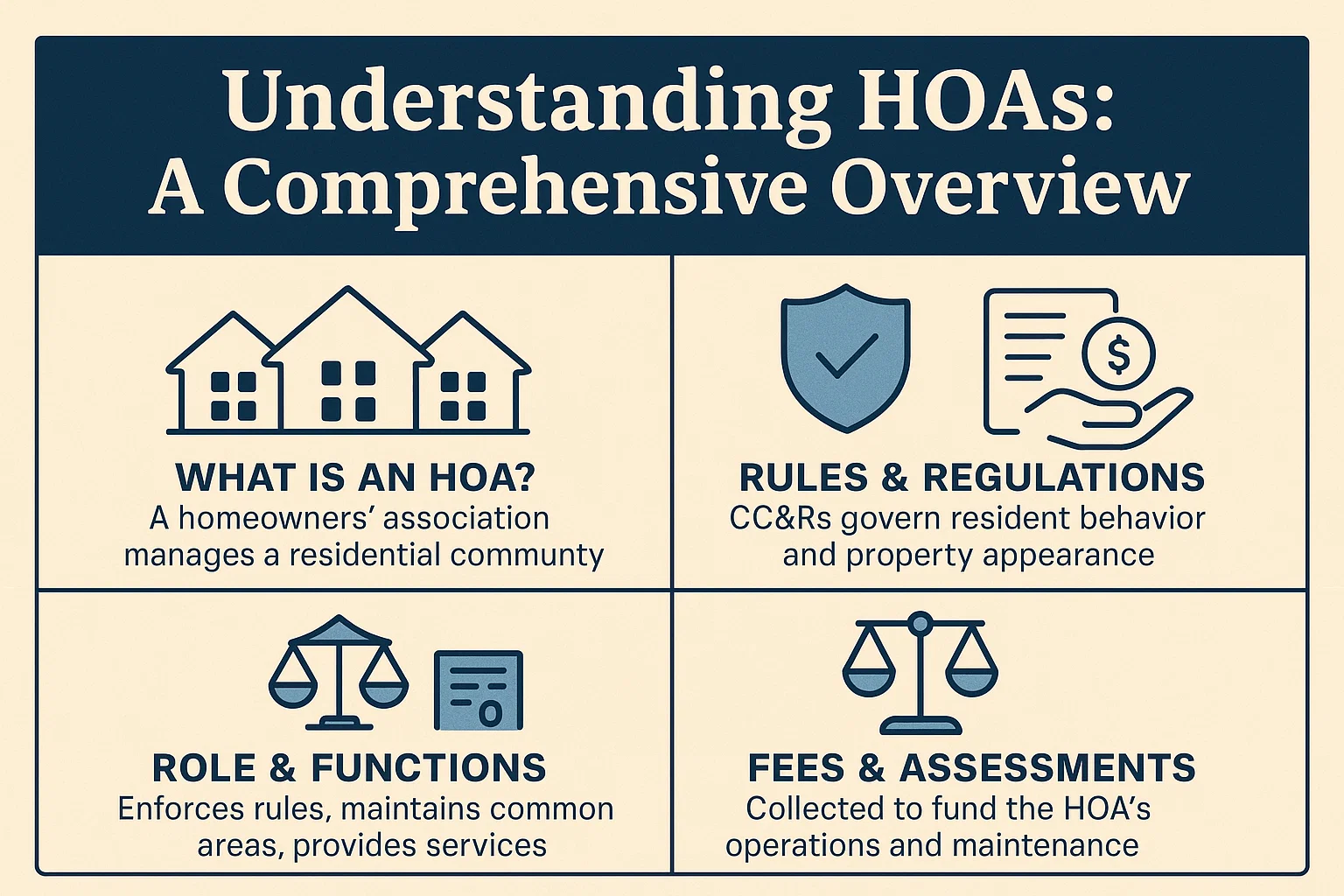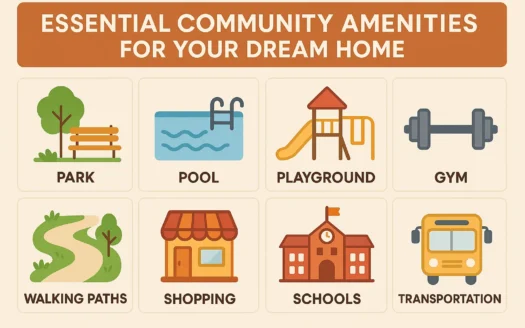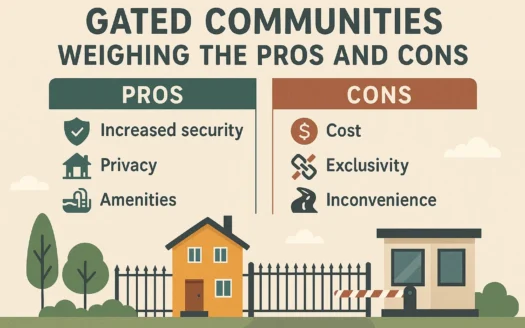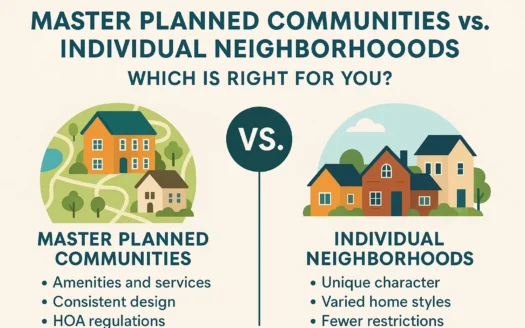Understanding HOAs: A Comprehensive Overview
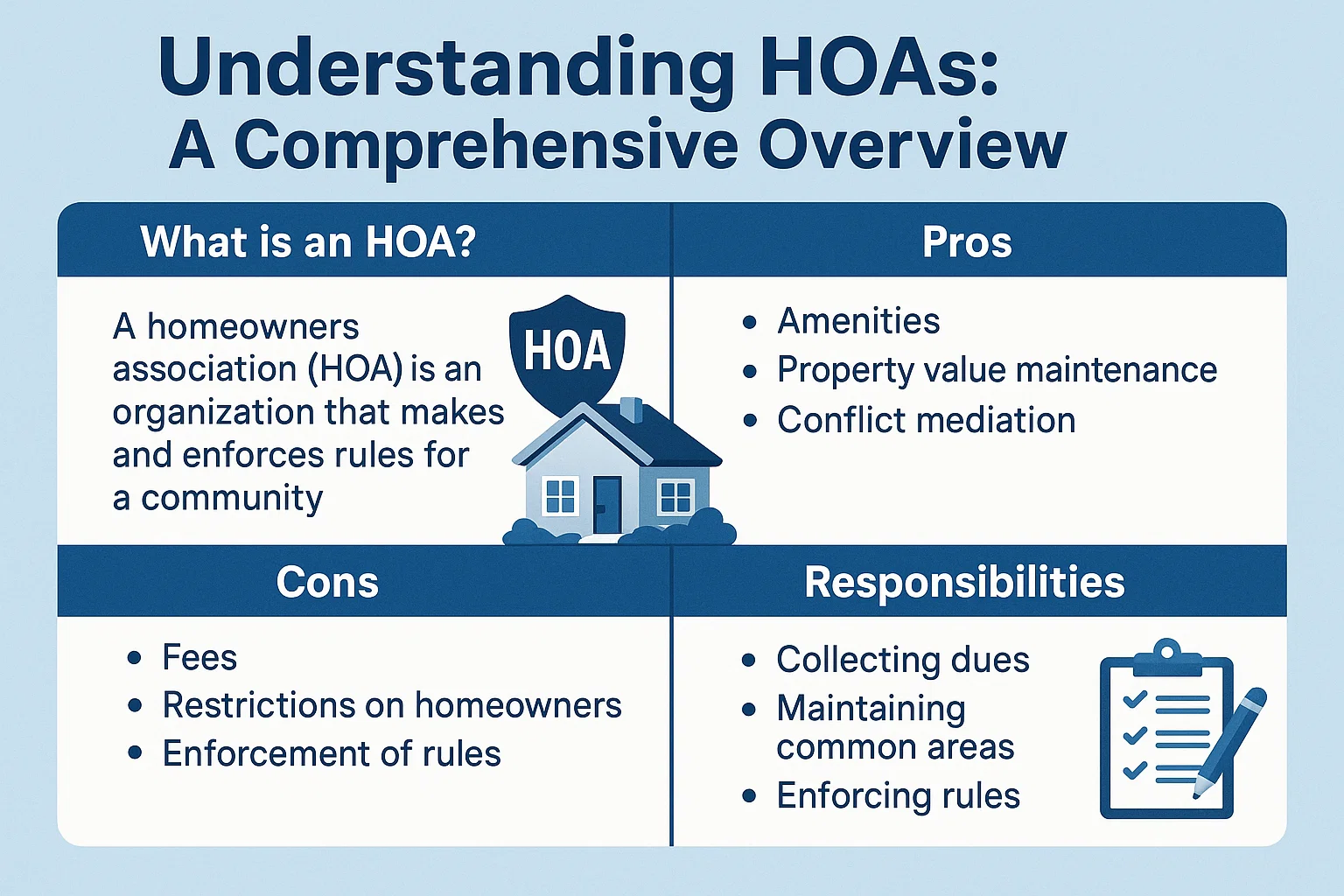
Understanding HOAs: A Comprehensive Overview
What Is a Homeowners Association (HOA)?
A Homeowners Association (HOA) is a self-governing organization that oversees common-interest communities, such as neighborhoods, condos, townhouses, or high-rises. HOAs enforce community guidelines, maintain shared amenities, and manage services. They are typically led by volunteer residents or professional management companies and funded through member dues.
How Much Do HOA Fees Cost?
HOA fees vary widely, ranging from $40 to over $2,000 per month, with the average falling between $200 and $300. Fees depend on amenities, community size, and location. HOAs can adjust dues or levy special assessments for emergencies or upgrades.
What Do HOA Fees Cover?
Rules and Regulations
HOAs enforce Covenants, Conditions, and Restrictions (CC&Rs), which govern property maintenance and neighborly conduct. Common rules include:
- Landscaping standards (e.g., grass height, tree planting)
- Exterior appearance (e.g., paint colors, fence design)
- Parking restrictions (e.g., no RVs in driveways)
- Pet policies (e.g., size or breed limits)
- Noise and short-term rental regulations
Amenities
HOAs may provide amenities such as:
- Landscaping and pest control
- Garbage collection
- Pools, fitness centers, and parks
- Community events and security services
Pros of an HOA
Well-Maintained Communities
HOAs ensure neighborhoods remain visually cohesive and well-kept, preserving curb appeal and structural standards.
Stable Property Values
Consistent upkeep and enforced regulations often help maintain or increase home values over time.
Community Engagement
Many HOAs organize social events, fostering connections among residents.
Conflict Resolution
HOAs mediate disputes between neighbors, ensuring fair enforcement of community guidelines.
Cons of an HOA
Cost vs. Benefit
Residents may feel fees outweigh the perks, especially in communities with few amenities.
Restrictive Guidelines
Rules on home aesthetics, landscaping, or pet ownership may limit personal freedom.
Penalties and Enforcement
Non-compliance or late payments can lead to fines, liens, or even foreclosure in extreme cases.
Bureaucratic Delays
Approval processes for renovations or repairs may slow down projects.
Internal Politics
HOA boards may face power struggles or biased decision-making, frustrating residents.
Is an HOA Right for You?
The decision to join an HOA depends on your priorities. If you value structure, amenities, and community standards, an HOA might be ideal. However, if flexibility and autonomy are more important, a non-HOA neighborhood could be a better fit. Always review an HOA’s CC&Rs and financial health before committing.
